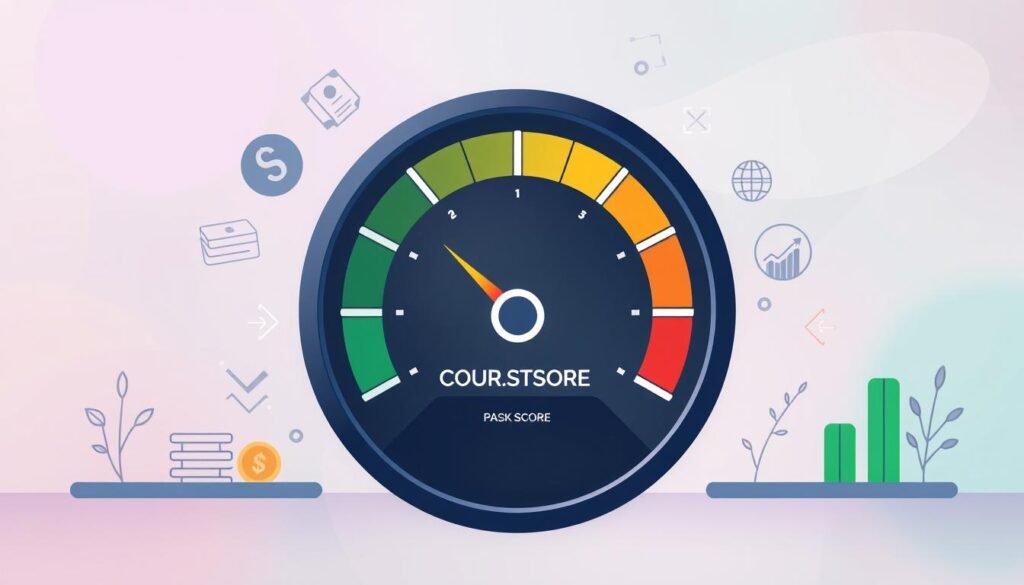This post may contain affiliate links, which means I may earn a commission if you purchase through these links at no extra cost to you
I’ve definitely had moments when my financial goals felt just out of reach like when I was denied a credit card or felt overwhelmed by mounting debt. It’s like being lost in rough waters with no clear path forward. But I learned that there is a way out. I educated myself and created a comprehensive credit repair guide that helped me take control. It gave me clear, actionable steps to improve my score, qualify for big purchases like a home or car, and finally breathe easier. I realized I wasn’t alone and neither are you.
Table of Contents
ToggleUnderstanding Credit Scores: The Basics
Credit scores show how healthy your finances are. They affect your chances to get loans, credit cards, and good deals. Generally, scores range from 300 to 850. Higher scores mean you’re more likely to repay loans on time.

The big three credit bureaus are TransUnion, Equifax, and Experian. They keep your credit info. In the U.S., you can check your credit report for free once a week at AnnualCreditReport.com. Plus, Equifax gives six extra free reports each year through 2026 to U.S. folks.
Components of a Credit Score
Understanding what makes up a credit score is key. FICO scores are used by nearly 90% of U.S. lenders. They look at:
- Payment history (35%): Your track record of on-time payments.
- Amounts owed (30%): How much debt you have now.
- Length of credit history (15%): The age of your credit accounts.
- New credit (10%): Your recent credit checks and new accounts.
- Credit mix (10%): The types of credit you use.
VantageScore also calculates your score, but it looks at:
- Payment history
- Credit type and length
- Credit limit usage percentage
- Total debt and balances
- Available credit
- New credit activity and checks
Why Credit Scores Matter
Credit scores are super important. They affect many financial choices. Businesses look at scores to decide if you’re creditworthy. They set loan terms, like interest rates, based on your score. A good FICO score falls between 670 and 739. For VantageScore, it’s 661 to 780. A high credit score gets you loans, low-interest rates, and sometimes, jobs.
To boost your score, pay bills on time and keep your credit use low. If your score is low, it can be hard to get loans. But understanding your score and its parts helps you improve your financial health.
Steps to Repair Your Credit Score
Repairing your credit score is not a quick fix. It requires several steps to improve your creditworthiness. Key actions include checking credit reports, disputing errors, managing delinquent accounts, and lowering credit utilization.
Check Your Credit Report
Begin by getting your credit reports from bureaus like Equifax, Experian, and TransUnion. You can get these reports for free weekly. Many people find errors on their reports, so it’s important to check yours carefully.
Dispute Credit Report Errors
If you find mistakes, act quickly to dispute them with the bureaus. Under the Fair Credit Reporting Act (FCRA), bureaus must investigate within 30 days. Providing extra information may extend this by 15 days. Correcting errors can quickly boost your credit score.
Bring Past-Due Accounts Current
Resolve any overdue accounts to prevent more damage to your score. Your payment history is a big part of your FICO score. Missed payments can remain on your report for up to seven years. Use autopay or reminders to keep payments on track.
Maintain a Low Credit Utilization Rate
Credit utilization is crucial for your FICO Score, making up 30% of it. Aim to keep your utilization under 30%. You could ask for a higher credit limit or pay down balances. Good credit management positively influences your credit profile.

Advanced Credit Rebuilding Strategies
Rebuilding your credit means using strong strategies beyond the basics. I’ll share some advanced ways to boost your credit score.
Secured Credit Cards
Secured credit cards are top-notch for anyone wanting to fix their credit. You’ll need a cash deposit that serves as security for the card issuer. Making payments on time shows creditors you’re reliable. This ups your credit score.
Also, keeping your credit use below 30% aids in improving your score.
Credit-Builder Loans
Think about credit-builder loans, too. They’re made to help build or fix your credit. The money you borrow is kept in a bank account until you’ve paid off the loan. Making regular payments on time matters. It’s reported to credit bureaus and shows lenders you’re trustworthy. That’s good for your credit score in the long run.
Credit Counseling Services
Using credit counseling services gives you personalized advice and helps manage debts. They teach you about your credit report and fix mistakes. They also provide resources to learn more. These services support your financial recovery journey well. They help deal with overdue accounts and keeping a low credit use rate.
Credit repair is key to keeping your finances healthy. It’s important to check your credit reports from TransUnion, Equifax, and Experian regularly. You can get one free report per week from each bureau by law. This helps catch any mistakes or late payments that could hurt your score over time.
Final Thoughts
Working on your credit score improves your financial health. Checking your credit activities often and following good practices helps you keep a strong score. With this, you can reach your financial dreams with confidence.
The key to a better credit score lies in several factors. Payment history influences 35% of your score, while how much debt you owe takes up 30%. How long you’ve had credit matters for 15%, the types of credit you use are 10%, and recent credit checks by lenders also make up 10%. Using tools to check your credit and making payments on time are vital steps.
To avoid missing a payment, set up automatic bill payments. This will keep you organized and help maintain your score.
It’s also important to regularly check your credit reports from Experian, Equifax, and TransUnion. This helps you catch and fix mistakes early on. Correcting errors can boost your score. Being proactive in managing your credit is key.
Improving your credit score requires time and patience. You need to use your existing credit smartly, by reducing debt and being on time with payments. Better credit scores mean more financial freedom. This includes easier access to loans, better rental options, and lower insurance costs.



